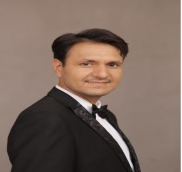
Wenbing Zhao
Professor, Department of Electrical Engineering and Computer Science, Cleveland State University
Title: Dos and Don’ts in Blockchain Research and Development
Abstract:
The goal of this talk is to clarify common misconceptions regarding the blockchain technology, and pointing out some worrisome practices in the field of blockchain technology. We first provide a brief introduction of the blockchain technology, highlighting its design principle, nuts and bolts, and the most fundamental innovation of the technology. Next, we elaborate on a key concept regarding data immutability. In particular, it is a mistake to equate blockchain to data immutability. Data immutability can only be achieved in large-scale public blockchains where the cost becomes an insurmountable barrier for any attempt to change the data recorded in the blockchain. The third topic we discuss is the differences between public, private, and consortium blockchains. We caution the use of private and consortium blockchains. The last topic we argue is regarding blockchain consensus. Because the proof of work (PoW) consensus algorithm has obvious drawbacks on energy consumption, many alternative algorithms have been proposed. We single out two most egregious wrong practices: (1) selecting a small set of validators for reaching consensus, and (2) adopting traditional distributed consensus.
Bio:
Dr. Zhao is a Professor at the Department of Electrical Engineering and Computer Science, Cleveland State University. He got his BS and MS degrees from the Physics Department in Peking University. He earned his Ph.D. at University of California, Santa Barbara in 2002. He has over 200 peer-reviewed publications and the author of the research monograph titled “From Traditional Fault Tolerance to Blockchain.” Dr. Zhao’s research spans from dependable distributed systems to human centered smart systems. His research has been funded by the US NSF, US Department of Transportation, Ohio Bureau of Workers’ Compensation, Ohio Department of Higher Education, the Ohio Development Services Agency, and Woodruff Foundation. He has delivered more than 10 keynotes, tutorials, public talks and demonstrations in various conferences, industry and academic venues. Dr. Zhao is an associate editor for IEEE Access, MDPI Computers, and PeerJ Computer Science, and a member of the editorial board of several international journals, including Applied System Innovation, Internal Journal of Parallel, Emergent and Distributed Systems, and International Journal of Distributed Systems and Technologies. He is currently an IEEE Senior Member and serves on the executive committee of the IEEE Cleveland Section.

Dr. Syed Abdul Rehman Khan
Professor of Logistics and Supply Chain Management
Title: Blockchain Technology and Circular Economy Practices: A New Era Business Strategies for Environmental Sustainability
Abstract:
Amid rising environmental concerns, Industry 4.0 and Blockchain technology (BCT) are transforming circular economy (CE) practices and prevailing business models. Recognize the same; this study examines the role of blockchain technology in circular CE practices; and their impact on eco-environmental performance, which influences organizational performance. The study collects data from 404 enterprises located in Chinese and Pakistani territories, involved in cross-border supply chain operations. Both countries’ sample has great relevance due to the China Pakistan Economic Corridor (CPEC), which possess several positive fallouts in terms of technology spillovers across firms. Using the PLS-SEM modeling framework, this study provides three key findings. First, BCT significantly improves the circular economy practices (circular procurement, circular design, recycling, and re-manufacturing). Second, CE practices help improve firms’ environmental performance and stimulate their financial performance. Third, higher eco-environmental performance significantly boosts organizational performance. This study set-out the foundations for participating countries/firms that simultaneously achieve financial and sustainable goals by integrating blockchain technology in circular economy practices.
Keywords: Blockchain technology; Circular economy practices; Organizational performance; Structural equation modeling
Bio:
Dr. Syed Abdul Rehman Khan is an expert of Supply Chain and Logistics Management. Dr. Khan achieved his CSCP—Certified Supply Chain Professional certificate from the U.S.A. and completed his postdoctoral fellowship from Tsinghua University. Dr. Khan is a Professor of Logistics and Supply Chain Management. He has more than twelve years’ core experience of supply chain and logistics at industry and academic levels. He has attended several international conferences and also has been invited as a keynote speaker in different countries. He has published more than 200+ scientific research papers in different well-renowned international peer-reviewed journals (SSCI/SCI and ABS listed) and conferences, including several research papers have been indexed in Essential Science Indicators (ESI). Dr. Khan is the authored of three books related to the sustainability in supply chain and business operations. He is a regular contributor to conferences and workshops around the world.

